
CLIMATE AND ENVIRONMENT GROUP MENTORS
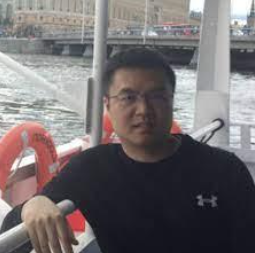
BIN Hu is an Associate Research Fellow and Director of Research on global climate governance at the Institute of Climate Change and Sustainable Development of Tsinghua University. His main research fields include global climate governance, and environmental and resource economics. His articles have been published widely on the economics of environment, climate change, and public policy, and he won the Honorable Mention Award from the Journal of Insurance Issues and CSIR at St. John’s University. He was also the Deputy Editor of the book Introduction to Global Climate Governance and worked as a research consultant for the IMF.
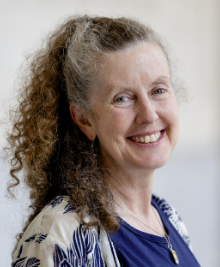
Jennifer Turner is a climate and environment expert focusing on a variety of energy and environmental challenges facing China, particularly on water, energy, and green civil society issues. Working with Circle of Blue, she co-produced multimedia reports, films, and convened on water-energy-food confrontations in China, India, Mexico, South Africa, and the United States. She received a Ph.D. in Public Policy and Comparative Politics in 1997 from Indiana University, Bloomington. Her dissertation examined local government innovation in implementing water policies in China.
ECONOMICS AND TRADE GROUP MENTORS
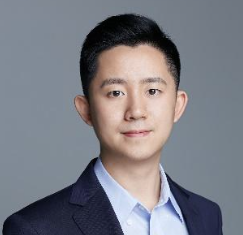
SUN Chenghao heads the U.S.-EU program at Center for International Security and Strategy (CISS), Tsinghua University. His research interests include U.S. domestic and foreign policy, China-U.S. relations, transatlantic relations, AI, and international security. He has authored dozens of reports and books. His latest books are Profound Changes Unseen in a Century and the U.S.-Europe Alliance, published by Popular Science Press in 2023, and The Gravity of Power in the White House: The National Security Council (1947-2019) published by Current Affairs Press in 2020. His work has been published in The Chinese Journal of American Studies, China International Studies, International Forum, and Northeast Asia Forum, among others. He has also published articles in Guangming Daily, China Youth Daily, China-US Focus, China Daily, CGTN, Global Times, Beijing Review and other outlets.

Steve Suranovic has been a faculty member at George Washington University since 1988. He has served several terms as Director of the International Economic Policy M.A. program at the Elliott School of International Affairs. Professor Suranovic teaches principles of microeconomics, international trade, and international finance theory and policy. In Fall 2002, he taught at Sichuan University in Chengdu, China, as a visiting Fulbright lecturer. Since 2009 he has taught summer study abroad classes for GW students at Fudan University in Shanghai. His research interests include international trade policy analysis, fairness in international trade, and the behavioral economics of cigarette addiction and dieting. His most recent research evaluates unfair trade policies with China and examines the world’s addiction to fossil fuels and the implications for global climate change. He received his B.S. in mathematics from the University of Illinois at Urbana/Champaign and his M.S. and Ph.D. in economics from Cornell University.
EDUCATION GROUP MENTORS

Emily M. Matson is an Assistant Teaching Professor of modern Chinese history at Georgetown University in the Edmund A. Walsh School of Foreign Service and the College of Arts and Sciences, Department of History. Emily is currently an Education Ambassador with the Council on Foreign Relations and a Research Affiliate with the University of Virginia East Asia Center and was a recent China Fellow at the Wilson Center. She has previously designed and taught courses in East Asian history at American University, the College of William and Mary, and Randolph College. Emily’s research interests include Manchuria, museums, historical memory, and World War II, and she is currently working on the manuscript of her first book. Her Ph.D. and M.A. are from the University of Virginia, and her B.A. is from the College of William and Mary.
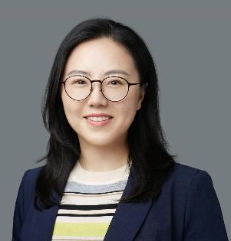
XIAO Qian is the Vice Dean of the Institute for AI International Governance (I-AIIG) and Deputy Director of the Center for International Security and Strategy (CISS) at Tsinghua University. From 2003 to 2014, she served in the Ministry of Foreign Affairs as well as the Chinese Embassies in Russia and the UK. She joined the Foreign Affairs Committee of the National People’s Congress (NPC) in 2015, where she contributed to parliamentary engagement and work related to the NPC Spokesperson’s Office. Since 2015, she has been engaged in the establishment and operation of the National Institute for Global Strategy of the Chinese Academy of Social Sciences, where she helped organize a series of events including the Joint U.S.-China Think Tank Project, U.S.-China High-level Experts Dialogue, and Weekend Forum on Security and Strategy. In 2019, Ms. Xiao joined Tsinghua University in the establishment and development of CISS and I-AIIG, and serves as Vice Dean of International Affairs.
ENERGY GROUP MENTORS
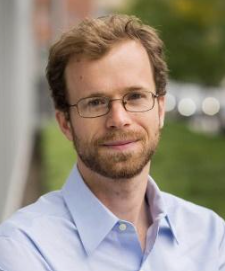
Michael Davidson is an Assistant Professor joint with the School of Global Policy and Strategy and the Mechanical and Aerospace Engineering Department at the University of California, San Diego, where he leads the Power Transformation Lab. Dr. Davidson’s teaching and research focus on the engineering implications and institutional conflicts inherent in deploying low-carbon energy at scale to mitigate environmental harms. Michael holds a Ph.D. in engineering systems and an S.M. in technology and policy from MIT, and a B.S. in mathematics and physics and a B.A. in Japanese studies from Case Western Reserve University. He has held a post-doctoral fellowship at the Harvard Kennedy School’s Belfer Center for Science and International Affairs, received a Fulbright Fellowship to study at Tsinghua University, and worked on U.S.-China climate policy for the Natural Resources Defense Council.
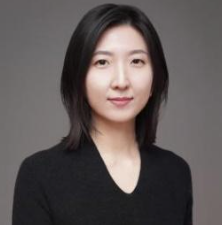
DONG Ting is a Fellow at Center for International Security and Strategy (CISS), Tsinghua University. She is interested in various non-traditional security issues, with concentrations on technology and maritime security. Before coming to Tsinghua, she worked as a “Boya” post-doc research fellow in the School of International Studies, Peking University. She earned her Ph.D. in US Strategy Studies, at the China Institute of Contemporary International Relations. She presided over several national research projects and published papers in English and Chinese journals. Her recent book The Logic of US Asia Pacific Maritime Strategy was published in Singapore.
